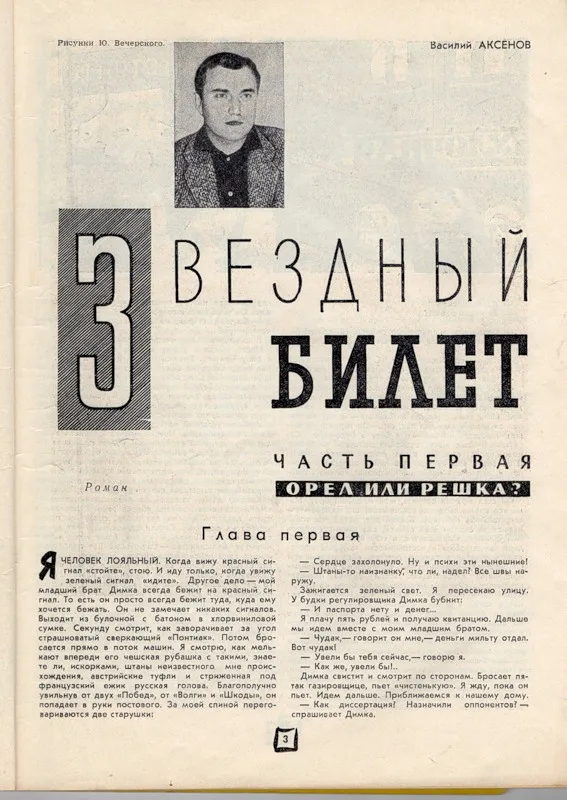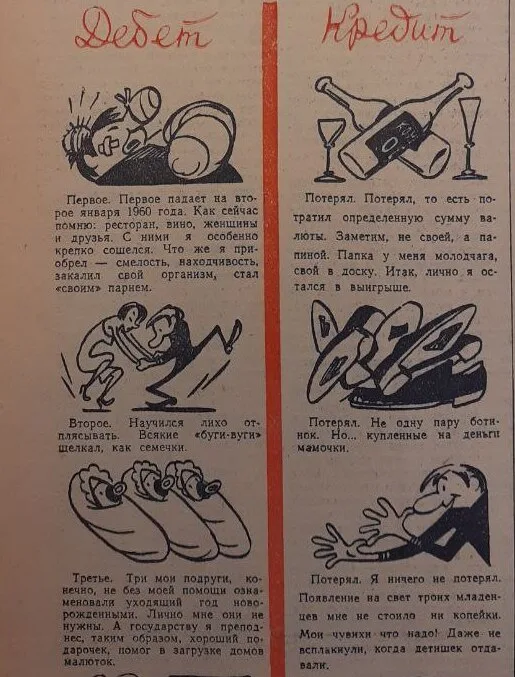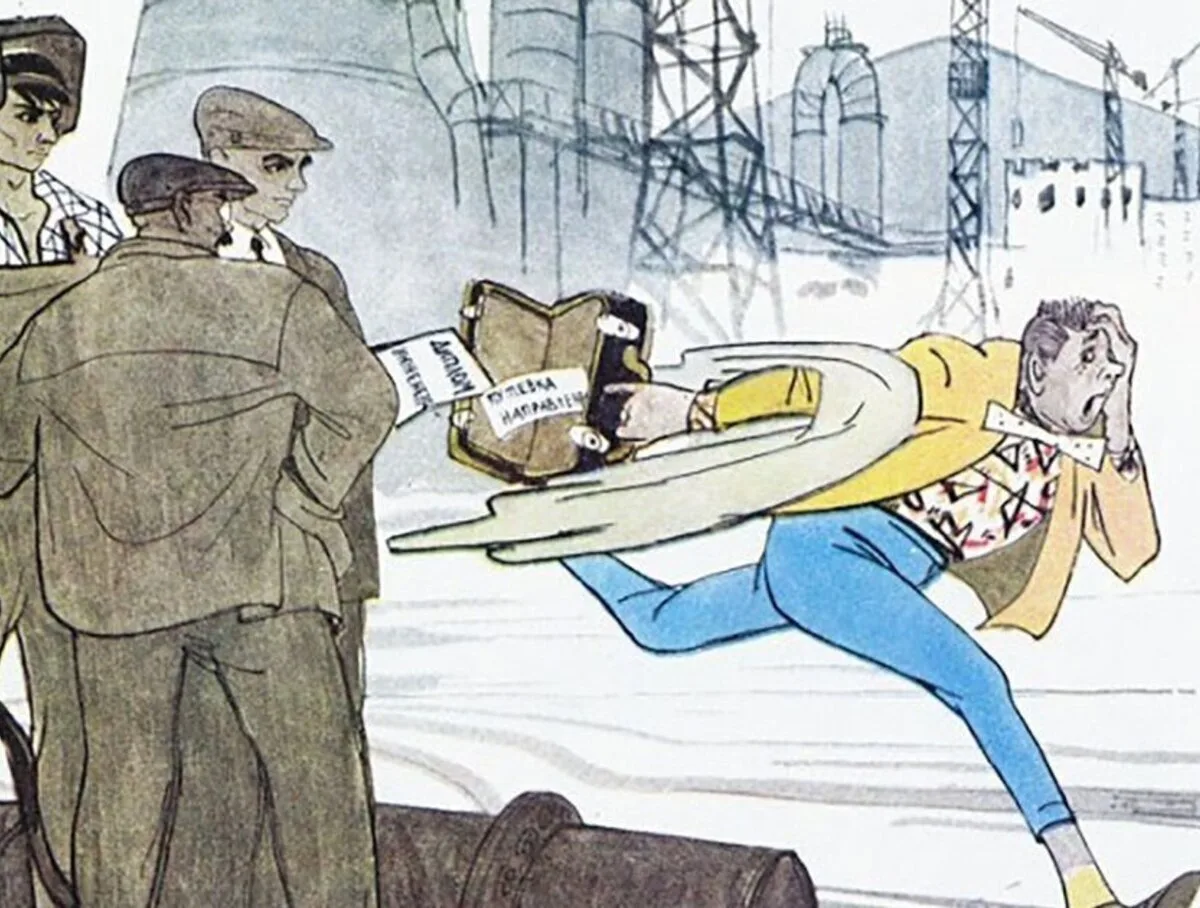There is a common claim on social media that the word “dude” was coined by hipsters in the 1950s and actually means “a person who respects high American culture.” We decided to check if this is true.
An explanation that dude is an abbreviation can be found on social networks and blog platforms: for example, in Twitter, "VKontakte", LiveJournal or "Zene" This statement is also recorded in the dictionary distributed on the Internet “Party slang" Finally, this etymology appears in “Wikipedia" with reference to the book "Kharkov in stories and anecdotes"
The word “dude” was introduced into literary use by Vasily Aksyonov, who used it in his novel “Star ticket”, published in the magazine “Youth” in the summer of 1961: “After all, no matter what happens to you, this nasty rain will fall and fall, and the sea will not move, and the sun will not come out, and you will not see the horizon. Fram helped. He got out of the water and shouted: “Dudes! You’re just what I need.”

But Aksyonov did not invent this word, but only recorded its use. This is how young people addressed each other in the 1950s, who were called dudes in the Soviet press. The word "dude" appears in diaries of the time. For example, in the diary of Lydia Barlas for December 4, 1958 (in the National Corpus of the Russian Language it is mistaken indicated 1956, the time of the first recording) there is such fragment: “The words in everyday life are: “at a high level”, “fact”, dudes are called “dude” and “dude”.”
Historian of Soviet culture Dmitry Kozlov At the request of “Verified”, I found even earlier examples in the archives - however, they all relate to the word “dude”. Here, for example, is an entry from Mikhail Krasilnikov’s diary for November 14, 1953: “It turns out that Valkina’s “lady” is the head of the second group (Russian) of the second year, Nelly Vasilyeva. I don’t know her, but it’s like she knows me.” Even earlier, on November 8, in the same diary, another feminine is found - “chuvaya”: “Mark has gathered a “musical” society - trumpeter-saxophonist, drummer and businessman Abramson. Later, Salik came with his “female” Lilka.”
The word “lady” is also found in newspapers before the publication of “Star Ticket.” In the newspaper “Smena” for May 24, 1955, in an article by writer Georgy Baldysh there is the following dialogue:
“Dear, don’t despair. Everything will work out, as old Tolstoy said. In May, when all nature is in bloom, we will have a colossal wedding. I will be a good husband and an irreplaceable son-in-law, believe me. And now I really want to give our girlfriend some kind of gift.
- To whom?
- Sorry. To my future wife."
And in January 1961, in the same “Smena”, a feuilleton was published about the morals of young people entitled “Annual Balance of Kaki Pryshchikov,” where there is an exclamation “My dudes are what we need!”

Thus, the female form “dude” is found in the texts known at this time earlier than the male form “dude”. It is possible that it is the primary one. Long before the appearance of dudes, philologist Alexey Barannikov mentions the word “dude” in the article “Gypsy elements in the Russian thieves' argot"(1931).

So far this is the only scientific version of the origin of the “dude”. With a “dude” it’s much more difficult. The same Vasily Aksenov in the book “In search of a genre” (first published in 1971 in the magazine “New World” under the title “Search for a Genre”) sets out the history of the word “dude”: “This word comes from the ordinary “man.” When you blow into a trumpet or saxophone for several hours in a row, your tongue swells in your mouth and you don’t have the strength to pronounce the usual “man,” but what comes out is “ch-e-e-k,” “chweek,” and ultimately “dude.”
It is unlikely that Aksenov’s explanation can be considered reliable. But it is characteristic that none of his contemporaries, who experienced the dudes and the thaw, have a story about an abbreviation for the phrase “a person who respects high American culture” - neither Aksyonov himself, nor, for example, saxophonist Alexei Kozlov, who in his book “Goat on the sax” talks in detail about the popularity of the words “dude” and “dude” in his youth.
The earliest mention of the version about the secret meaning of the word “dude” was found in Oleg Platonov’s book “The crown of thorns of Russia: the history of the Russian people in the twentieth century"(1996). This author paid much attention to anti-Semitic conspiracy theories, his major works — “Russia under the rule of the Freemasons”, “Myths and truth about pogroms”, “Secret world government. War against Russia", several of his books (including "Russia's Crown of Thorns" included Ministry of Justice of the Russian Federation to the Federal List of Extremist Materials). In 2020 Platonova convicted suspended for four years under Article 282 of the Criminal Code “Inciting hatred or enmity.” Platonov consistently blames Jews and the “world government” (created, in his opinion, by Jews) for all of Russia’s ills, and also denies the Holocaust.
In his book, Platonov admits that the word “dude” entered the vocabulary of Soviet youth thanks to external enemies. Here is one of the fragments: “Whether the word “dude” was introduced into the circulation of this essentially “savage environment” by foreign intelligence services or by some scion of the Soviet bureaucratic elite, it captured the most important thing in their life - admiration for the West and contempt for Russia.” At the same time, Platonov himself was born in 1950, did not experience the era described at a conscious age, and could not find such a transcript in written sources. Most likely, he is the author of this statement.
We can conclude that the etymology of the word “dude” is still not completely clear. However, the theory about the secret meaning and acronym for “a person who respects high American culture” was coined by a well-known conspiracy theorist and Holocaust denier, and this happened 40 years after the widespread use of the word “dude” among Soviet youth.
Cover photo: caricature from Krokodil magazine
Not true
- Is it true that the expression “keep a tight rein” is associated with the head of the NKVD Yezhov?
- Is it true that the words “trash”, “sharomyzhnik” and “sharomyzhnik” are of French origin?
- Is it true that the word “shit” comes from the Latin word hernia (“hernia”)?
If you find a spelling or grammatical error, please let us know by highlighting the error text and clicking Ctrl+Enter.






